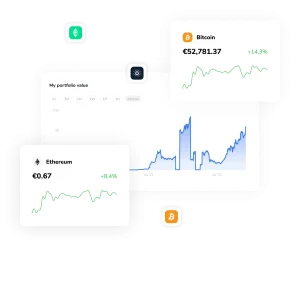
Let’s be honest. The word “crypto” often conjures images of anonymous, untraceable digital cash. But here’s the deal: that’s a myth. Most cryptocurrencies, like Bitcoin and Ethereum, operate on a public ledger. Every single transaction is recorded for anyone, anywhere, to see. It’s less like a secret Swiss bank account and more like a public billboard with your financial history painted on it.
That’s where privacy-focused wallets and transactions come in. They are the tools that give you back control, allowing you to choose what the world gets to see. Think of it as drawing a curtain, not building a fortress. It’s about discretion, not necessarily illegality.
Why Should You Even Care About Crypto Privacy?
You might be thinking, “I have nothing to hide.” Sure. But do you want every purchase you make—that coffee, that donation, that online subscription—to be permanently linked to your public identity? Probably not.
Strong privacy in cryptocurrency transactions matters for a few key reasons:
- Financial Security: A public wallet balance is a beacon for hackers. Privacy tools obscure your holdings, making you a much less attractive target.
- Personal Safety: Preventing doxxing and physical threats that can arise from flaunting wealth online.
- Commercial Confidentiality: Shielding business transactions from competitors who are watching the blockchain.
- Freedom from Profiling: Avoiding having your entire spending habit analyzed and sold by data aggregators.
It’s not about secrecy; it’s about having a choice. It’s the difference between shouting your bank statement in a town square and discussing it with a trusted confidant.
The Tools of the Trade: Wallets Built for Discretion
Not all wallets are created equal. A standard wallet, like many hot wallets connected to the internet, often does little to hide your activity. Privacy wallets, however, are engineered differently. They often integrate privacy protocols directly into their interface.
What Makes a Wallet “Privacy-Focused”?
Well, it’s a combination of features. A top-tier anonymous bitcoin wallet or a secure monero wallet will typically offer:
- No KYC (Know Your Customer) requirements: You don’t need to hand over your passport to use it.
- Integrated CoinJoin or mixing services: This lets you pool your transaction with others, making it incredibly difficult to trace the source.
- Native support for privacy coins like Monero (XMR) or Zcash (ZEC).
- Running on a decentralized network like Tor by default, which hides your IP address.
A Quick Look at Popular Privacy Wallets
| Wallet Name | Type | Key Privacy Feature |
| Wasabi Wallet | Desktop (Bitcoin) | Built-in CoinJoin coordination |
| Samourai Wallet | Mobile (Bitcoin) | Ricochet & Stonewall transaction types |
| Cake Wallet | Mobile | Native support for Monero & built-in exchange |
| Feather Wallet | Desktop | Lightweight Monero wallet, Tor integration |
Each has its own philosophy. Wasabi and Samourai are brilliant for bringing privacy to the Bitcoin network. Wallets like Cake and Feather, on the other hand, are built for Monero, a cryptocurrency that has privacy baked into its very core protocol.
How Private Transactions Actually Work: A Peek Under the Hood
Okay, so how do these tools actually break the chain of visibility? Let’s demystify the core techniques without getting too deep in the technical weeds.
1. CoinJoin: The Party Mixer
Imagine a bunch of people at a party all put their cash into a big bowl. Then, they each take out the same amount they put in, but the bills are all mixed up. An observer can see money going in and out, but they can’t tell who originally owned which specific bills. That’s CoinJoin in a nutshell. It’s a collaborative process that obfuscates the trail.
2. Stealth Addresses: One-Time Use Codes
This is a feature used by coins like Monero. When someone wants to send you funds, the wallet doesn’t use your main, public address. Instead, it generates a unique, one-time “stealth address” for that specific transaction. All the funds sent to these disposable addresses are then funneled to your real wallet. It’s like having a P.O. box that generates a new box number for every piece of mail you receive.
3. zk-SNARKs: The Magic Trick
This one’s a bit of magic. zk-SNARKs (Zero-Knowledge Succinct Non-Interactive Argument of Knowledge) is a technology that allows one party to prove to another that a statement is true, without revealing any information beyond the validity of the statement itself. For example, you can prove you have enough funds for a transaction without revealing your balance or your transaction history. Poof. It’s verification without exposition.
The Other Side of the Coin: Challenges and Considerations
It’s not all smooth sailing. The path to enhancing crypto transaction anonymity comes with its own set of hurdles.
Regulatory scrutiny is intense. Some centralized exchanges have started to delist privacy coins or flag transactions coming from known mixers. There’s a constant, and honestly, understandable tension between individual privacy and regulatory compliance.
Then there’s the user experience. Some privacy techniques can be slower, or more expensive, than a standard transaction. And if you make a mistake—sending funds from a private wallet to a transparent, public one—you can unintentionally shatter the privacy you worked so hard to build. It’s a bit like using a shredder, then taping the pieces back together.
The Future of Financial Privacy
So where does this leave us? The cat-and-mouse game between blockchain analysts and privacy developers will undoubtedly continue. But the underlying demand for financial privacy isn’t going anywhere. In fact, it might be more relevant than ever.
The evolution of these tools points towards a future where privacy becomes a seamless, default option rather than a complex add-on. A future where you don’t have to choose between participating in the digital economy and maintaining control over your personal data.
In the end, using a privacy-focused wallet isn’t about hiding. It’s about asserting a fundamental right. It’s a quiet, deliberate step towards a world where your financial life is yours, and yours alone, to share.








